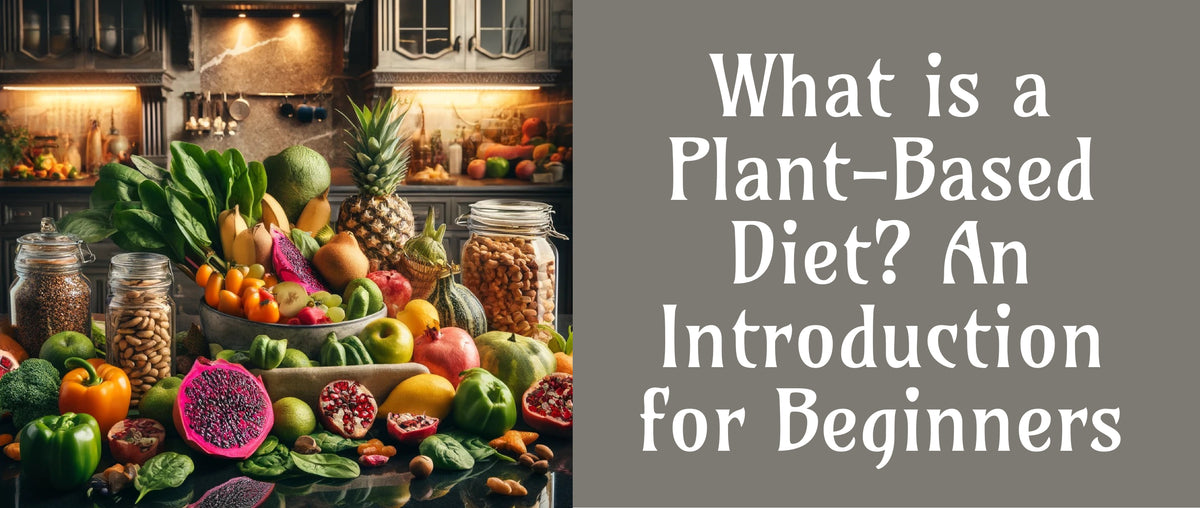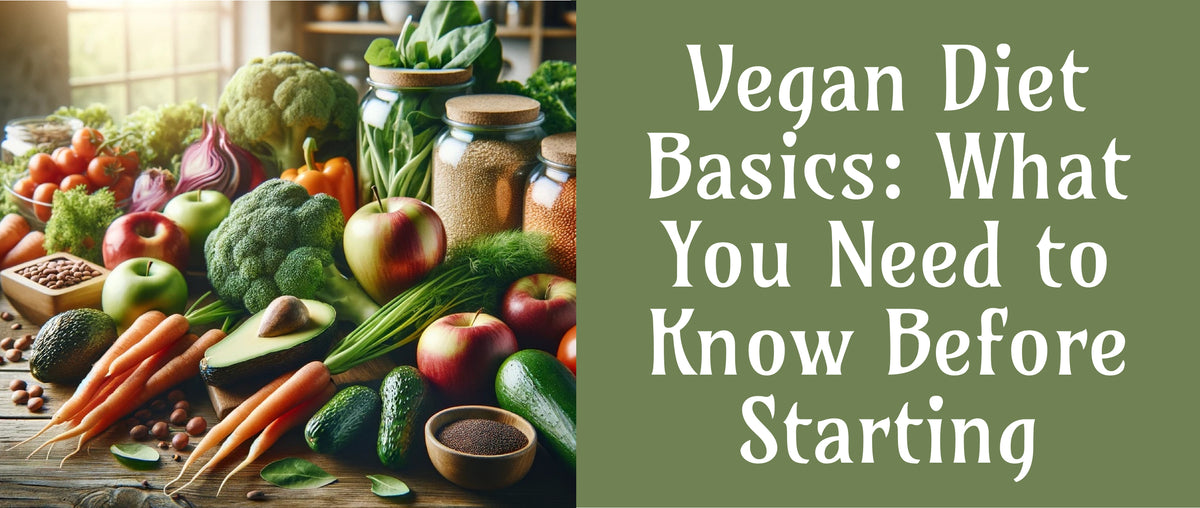What is a Plant Based Diet? An Introduction for Beginners
A plant based diet is a dietary approach that emphasizes whole, minimally processed foods derived from plants. This includes a wide variety of fruits, vegetables, whole grains, legumes, nuts, and seeds, while minimizing or excluding animal products entirely. As more people become health-conscious and environmentally aware, the popularity of plant based diet continues to rise. This diet offers a sustainable and ethical alternative to traditional eating habits, appealing to those looking to improve their health and reduce their environmental impact.
Key Takeaways
- Health Benefits: Improves heart health, supports weight management, and reduces the risk of chronic diseases.
- Environmental Impact: Reduces carbon footprint and promotes sustainable agriculture.
- Ethical Considerations: Supports animal welfare and reduces reliance on factory farming.
What is a Whole-Foods, Plant Based Diet?
A whole-foods, plant based diet focuses on consuming unrefined plant foods in their natural state. This dietary approach avoids highly processed foods, added sugars, and refined grains. Unlike some plant based diets that allow for processed vegan foodss, a whole-foods approach prioritizes nutrient density and minimal processing. The key difference between a plant based diet and a whole-foods, plant based diet is that the latter emphasizes consuming foods as close to their natural form as possible, ensuring maximum nutritional benefits.

Benefits of a plant based diet
The health benefits of a plant based diet are numerous. By reducing the intake of saturated fats and cholesterol found in animal products, individuals can lower their risk of heart disease, hypertension, and stroke. plant based diets are rich in fiber, antioxidants, and phytonutrients, which support overall health and can aid in the prevention of chronic diseases such as diabetes and certain cancers. For those looking to maintain a healthy weight or support a weight gain diet plan, the nutrient-rich foods in a plant based diet can help achieve these goals without the added calories and unhealthy fats found in many animal products.
In addition to health benefits, a plant based diet has a significant positive impact on the environment. By reducing the consumption of meat and other animal products, individuals can lower their carbon footprint, conserve water, and reduce deforestation caused by livestock farming. This dietary choice supports more sustainable agricultural practices, making it an environmentally responsible option.
Ethical considerations also drive many people to adopt a plant based diet. The reduction in demand for factory-farmed animal products supports better animal welfare and promotes more humane treatment of animals. By choosing plant based food products, individuals contribute to a reduction in animal suffering and a more ethical food system.
Health Conditions Benefited by a plant based diet
A plant based diet has been shown to benefit various health conditions. For individuals with heart disease, a diet rich in fruits, vegetables, whole grains, and legumes can improve heart health by reducing cholesterol levels and blood pressure. People with diabetes can benefit from the diet's ability to regulate blood sugar levels and improve insulin sensitivity. Additionally, the diet supports weight management, helping to prevent and manage obesity. Certain plant compounds have been linked to cancer prevention, making a plant based diet a proactive choice for those looking to reduce their cancer risk.
Foods to Eat on a Whole-Foods, plant based diet
A whole-foods, plant based diet includes a diverse array of foods that provide essential nutrients. Vegetables, such as leafy greens, cruciferous vegetables, and root vegetables, are staples. Fruits, including berries, citrus fruits, and tropical fruits, offer vitamins and antioxidants. Whole grains like brown rice, quinoa, oats, and barley provide fiber and complex carbohydrates. Legumes, such as beans, lentils, chickpeas, and peas, are excellent sources of protein and fiber. Nuts and seeds, including almonds, chia seeds, flaxseeds, and walnuts, offer healthy fats and protein.
Foods to Avoid or Minimize on This Diet
To maximize the benefits of a whole-foods, plant based diet, it is important to avoid or minimize the intake of processed foods, refined grains, added sugars, and animal products. Processed foods, such as packaged snacks, ready-made meals, and sugary cereals, often contain unhealthy additives and lack essential nutrients. Refined grains, like white bread, white rice, and pasta made from refined flour, should be replaced with whole grains. Added sugars, found in sweets, sodas, and other sugary beverages, can contribute to various health issues and should be limited. Lastly, animal products, including meat, dairy, eggs, and fish, are minimized or excluded to fully embrace the plant-based approach.
Nutritional Aspects
Ensuring nutritional balance in a plant based diet involves focusing on a variety of nutrient-rich foods. Essential nutrients, such as protein, iron, calcium, omega-3 fatty acids, and vitamin B12, can be obtained from plant sources. Protein is abundant in legumes, nuts, seeds, and whole grains. Iron can be found in leafy greens, legumes, and fortified cereals. Calcium is available in fortified plant milks, tofu, and leafy greens. Omega-3 fatty acids are found in flaxseeds, chia seeds, and walnuts. Since vitamin B12 is primarily found in animal products, it is important to consume fortified foods or take supplements to ensure adequate intake.
Maintaining a diverse diet is crucial for nutritional balance. Including a variety of fruits, vegetables, grains, and legumes ensures a wide range of nutrients. Fortified foods, such as plant milk(Oat Milk) and cereals, can help meet nutritional needs. Supplements may be necessary for nutrients that are difficult to obtain from plant sources alone, such as vitamin B12.
Common nutrient deficiencies in a plant based diet can be addressed with careful planning. Vitamin B12 deficiency can be prevented by taking supplements or consuming fortified foods. Iron absorption can be enhanced by combining iron-rich foods with vitamin C sources, such as citrus fruits. Calcium needs can be met with fortified plant milks and calcium-rich vegetables.
Getting Started
Transitioning to a plant based diet can be made easier with a few practical tips. Gradual changes are often more sustainable than sudden shifts. Start by incorporating more plant-based meals into your diet and gradually reduce animal products. Meal planning is essential to ensure a balanced intake of nutrients. Experimenting with new plant-based recipes can keep meals interesting and satisfying.
Sample meal plans can provide guidance for those new to the diet. For example, a typical day might include a smoothie bowl with fruits, nuts, and seeds for breakfast, a quinoa salad with chickpeas and mixed vegetables for lunch, and stir-fried tofu with brown rice and steamed broccoli for dinner. Another day could feature oatmeal with berries and almond butter for breakfast, lentil soup with whole-grain bread for lunch, and stuffed bell peppers with quinoa and black beans for dinner.
Creating a shopping list with essential plant-based foods can help ensure you have the necessary ingredients on hand. Fresh produce, such as fruits and vegetables, should be a staple. Whole grains, including brown rice, quinoa, and oats, provide fiber and nutrients. Legumes, such as beans, lentils, and chickpeas, offer protein and fiber. Nuts and seeds, like almonds, chia seeds, and flaxseeds, provide healthy fats and protein. Plant based milks, such as almond milk, soy milk, and Oat Milk, can replace dairy products.
Also Read
Common Challenges
Adopting a plant based diet can present some challenges, but these can be managed with the right strategies. Social and cultural challenges may arise when eating out or attending social gatherings. Finding restaurants with plant-based options or requesting modifications to menu items can make dining out easier. Bringing your own plant-based dish to share at social gatherings ensures you have something to eat and introduces others to plant-based cuisine.
Managing cravings is another common challenge. Healthy substitutes, such as fruits and nuts, can satisfy cravings without compromising the diet. Staying hydrated is also important, as thirst is sometimes mistaken for hunger.
Dealing with criticism from others can be challenging, but educating yourself about the benefits of a plant based diet can help you respond confidently. Focus on your own health goals and the positive changes you're experiencing to stay motivated.
Delicious Plant-Based Recipes
Enjoying a variety of delicious plant-based recipes can make the transition to this diet enjoyable. For breakfast, avocado toast on whole-grain bread topped with cherry tomatoes and a sprinkle of seeds is a nutritious and tasty option. Chia pudding made with chia seeds soaked in almond milk and topped with fresh fruit and nuts is another satisfying breakfast choice.
For lunch and dinner, a vegan Buddha bowl with quinoa, roasted vegetables, chickpeas, and a tahini dressing is both nutritious and flavorful. A vegetable stir-fry with mixed vegetables and tofu served over brown rice is another healthy and delicious option.
Plant-based snacks and desserts can also be enjoyable. Energy balls made with dates, nuts, and seeds are a convenient and healthy snack. A fruit salad with a mix of seasonal fruits and a drizzle of lime juice is a refreshing dessert.
Conclusion
Adopting a plant based diet offers numerous health benefits, supports environmental sustainability, and aligns with ethical values. By focusing on whole, minimally processed plant foods, you can enjoy a nutritious and satisfying diet. Start your plant-based journey today and experience the positive changes it brings to your health and well-being.
Do you enjoy vegan food? We have a list of vegan restaurants in India to help you find delicious options in your area!










